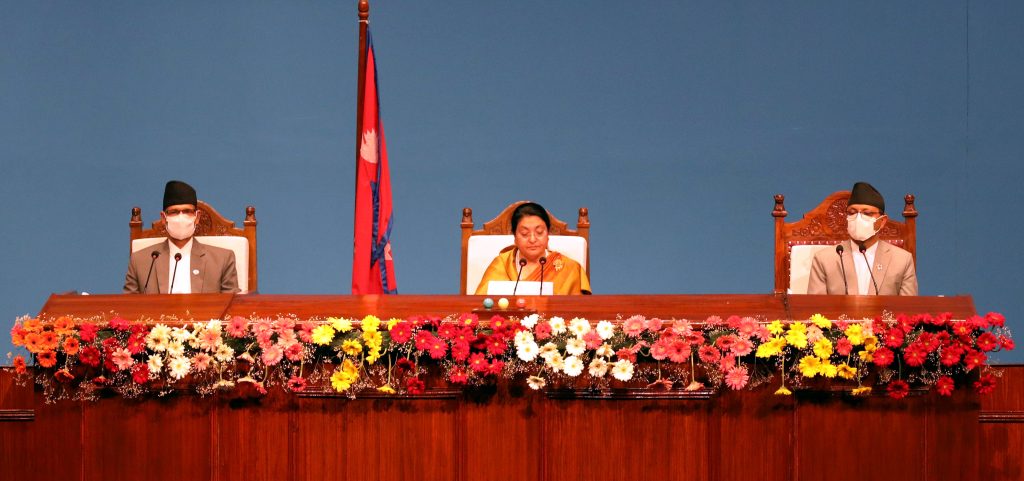KATHMANDU: President Bidya Devi Bhandari is in a tight spot as both houses of the federal parliament endorsed the controversial citizenship bill unchanged, rejecting her suggestions for reconsideration.
Days after the House of Representatives endorsed the bill, the National Assembly also approved the controversial document with majority votes on Friday evening. Earlier, the bill was sent to its Legislation Committee for a detailed discussion, but it had sent back the bill unchanged.
Now, the assembly will send back the bill to the House of Representatives where it originated. Then, Speaker Agni Prasad Sapkota will certify the bill and send it to the president seeking final assent.
But, President Bhandari apparently does not want this as she had sent back the citizenship bill for a revision with a 15-point suggestion. Yet, constitutionally, she does not have any option but to approve it when a bill is sent to her for the second time.
There are speculations that the president might resign or seek the Supreme Court’s opinion, but constitutional experts are divided about the availability of such options.
The second amendment to the Citizenship Act was aimed at addressing concerns of the Madhesh-centric parties and the Non-resident Nepali Association. However, it was drawn into controversy citing the citizenship bill did not bar foreign women marrying Nepali men from getting citizenship easily.
Self-claimed nationalist activists have expressed concerns that loose citizenship provisions in Nepal could give the dominating India to gradually push its citizens to Nepal and perpetuate its control over the small county.
Consequently, President Bidya Devi Bhandari returned the citizenship bill to the parliament, suggesting a reconsideration, bringing herself into a conflict with the executive.

